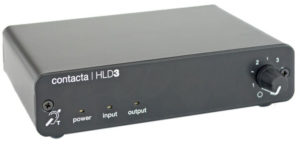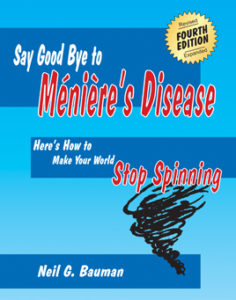by Neil Bauman, Ph.D.
© August, 2018
Dementia linked to hearing loss has been in the news quite a bit lately. The media hype has left some hard of hearing people feeling that they’ll end up with dementia simply because they now have a hearing loss—as though hearing loss has to result in dementia. Furthermore, some less than ethical hearing professionals have used this hype as scare tactics in order to try to sell more hearing aids.
To be sure, there is a kernel of truth in the news that there is a link between hearing loss and dementia. Therefore, let’s look at the results of some studies and put the results into proper perspective.
In one study, researchers identified nine modifiable higher-risk factors that they statistically linked to dementia. Of these factors, hearing loss is ranked number one. Those are the facts. However, the devil is in the details.
First, there are two broad categories of factors that cause dementia—those that we have no control over, and those that we have some control over.
The larger group, composed of factors we have no control over, such as aging and family history, comprise a whopping 65% of the total risk of getting dementia. These non-modifiable risk factors are obviously much more significant than hearing loss—only one of the 9 modifiable risk factors.
The nine modifiable risk factors that researchers have identified as contributing 35% in total to dementia (in order from greatest to least) are: hearing loss (9%), low-level of education (8%), smoking (5%), depression (4%), physical inactivity (3%), hypertension (2%), social isolation (2%), obesity (1%) and Type II diabetes (1%).
These figures show the percentage reduction in new cases of dementia if this risk factor is eliminated. As you can see, most of these factors are lifestyle-related issues and, as such, we have considerable control over them if we choose to do so.
I find three observations of some note in this research.
1. The risk of uncorrected hearing loss only contributes 9% to an increased risk in getting dementia. Although this is a significant increase in risk, it is still only 9%. We’re not talking a 90% increase in risk just because you have an uncorrected hearing loss. Thus, if you have a hearing loss, dementia isn’t a sure thing, or even a likely thing. You don’t even have a 10% chance of getting it just because you have a hearing loss.
Therefore, don’t let people scare you into getting hearing aids before you are ready to do so—but do get and wear hearing aids as they will likely make your life easier and less stressful.
2. Researchers lumped these nine risk factors into three groups, depending at what stage of life they occur.
- Early life – low-level of education
- Mid-life – hearing loss, hypertension, obesity
- Later life – smoking, depression, physical inactivity, social isolation, diabetes.
Note that this study identified hearing loss that occurs in mid-life as the hearing loss risk factor for dementia.
This means that this risk factor does not apply to those of us who were born with severe hearing losses or acquired hearing losses in early childhood. It appears that hearing loss in early life is not a risk factor for dementia. It’s only when you acquire a hearing loss later in life that hearing loss becomes a significant factor.
Therefore, if you were born deaf or with a hearing loss, you don’t have to worry that you were sentenced at birth to having dementia later in life. That is not what this study revealed, so you can set your mind at rest in this regard.
3. Note that mid-life hearing loss in itself is not a risk factor for dementia, it is uncorrected mid-life hearing loss. A large study found that the group that used hearing aids did not experience the cognitive decline (dementia) that the non-hearing aid group did.
Thus, the good news is that if you lose hearing during mid-life and choose to correct this by wearing hearing aids, you can reduce your risk of getting dementia by 9%.
At the same time, don’t ignore the other 8 factors. By addressing each of them you can reduce your risk of dementia by one third!
You may be wondering how uncorrected hearing loss contributes to dementia. There are a least three main factors.
First, it can add to your cognitive load. In other words, your brain has to work harder to try and decipher speech. Thus, you have fewer mental resources left to think about what people are saying and analyzing what is going on around you.
Second, it can lead to social disengagement. In other words, if it’s too hard to try and understand what people are saying, you tune out. Ultimately, you no longer put yourself in such social situations and largely may become a recluse.
Third, because of being cut off from those around you, you may become depressed.
All of these can contribute to accelerated cognitive decline into dementia. Correcting your hearing loss with hearing aids can reverse this downward spiral.
It appears that this is because wearing hearing aids reduces your cognitive load in trying to understand speech. As a result, you’ll find that when you are wearing your hearing aids, you’ll find socializing easier. Therefore, you will not disengage and tune out as much, and as a result, you’ll not be depressed.
In contrast, adults with untreated hearing loss report greater stress, increased social isolation and poor family relationships.
The take away from all of this is that you need to remain active both physically and mentally, live a healthy lifestyle, and if you develop a hearing loss by all means get and wear properly-fitted hearing aids. Also, take advantage of all assistive devices to help you communicate better under difficult listening situations. This could be as simple as turning on the captions on your TV so that you can read the words that your ears miss.
When you do this, your future need not be any less exciting and fulfilling. It may just be a bit different as you make allowances for your hearing loss—but definitely worth it!
________
Hampton, Dennis. 2018. “Nine Risk Factors Associated with Dementia”. In: The Hearing Review, Vol. 25, No. 8, August 2018. p. 22.



Leave a Reply